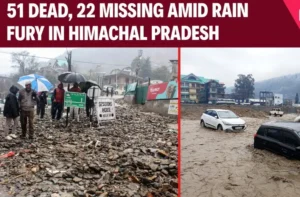Hyderabad has become the epicenter of nationwide dissent against the recently enacted Waqf Amendment Bill 2025, with thousands rallying across the city to voice their opposition. The legislation, which received presidential assent on April 5, has been widely criticized by Muslim leaders, civil society groups, and political representatives, who argue that it targets minority rights and undermines the constitutional protections for waqf properties.
Massive Rallies and United Opposition
On April 13, thousands of Hyderabadis from all walks of life gathered at Nizam College Grounds, marching to the Dr. B.R. Ambedkar statue at Tank Bund. Protesters, waving the national tricolor, chanted slogans against the BJP-led central government and Prime Minister Narendra Modi, labeling the Waqf Amendment Act as “unconstitutional” and “anti-minority.” The demonstration saw participation from women, political leaders, social activists, and student unions, highlighting the broad-based opposition to the law.


AIMIM and AIMPLB Lead the Charge
The movement has been spearheaded by All India Majlis-e-Ittehadul Muslimeen (AIMIM) chief Asaduddin Owaisi and the All India Muslim Personal Law Board (AIMPLB). Addressing a packed audience at Darussalam on April 19, Owaisi drew parallels to the farmers’ movement that led to the repeal of controversial farm bills, urging Muslims nationwide to prepare for a sustained struggle against the Waqf Amendment Act.
Owaisi warned that the fallout of the new law was already visible, citing the declaration of 500 waqf properties as government land in Uttar Pradesh. He criticized the Act for enabling those in illegal possession of waqf land for 12 years to become legal owners, a move he argued would result in the loss of thousands of waqf properties.
Owaisi also condemned the inclusion of the Dawoodi Bohra community under the Act despite their explicit request for exclusion, and called on Muslims to unite across sects and involve non-Muslims in the fight to protect constitutional rights.
AIMPLB chairman Maulana Khalid Saifullah Rahmani echoed these concerns, describing the legislation as “dark” and expressing hope that the Supreme Court would intervene to strike it down. He emphasized that the changes failed to address the real issues facing waqf properties and warned that the Act could disrupt the longstanding tradition of interfaith land donations in Hyderabad.
Legal Battle Reaches the Supreme Court
The legal fight against the Waqf Amendment Act has reached the Supreme Court, where multiple petitions have challenged the law as discriminatory and violative of fundamental rights. The apex court has expressed concerns over several provisions, including the de-notification of waqf properties, the composition of waqf boards, and the treatment of disputed properties. The court indicated it may issue an interim order to pause the law’s implementation on these contentious aspects, stating that “government cannot rewrite history” by stripping waqf status from properties declared as such by courts.
Peaceful Protests and Civic Impact
Authorities in Hyderabad implemented traffic restrictions around protest sites, urging citizens to cooperate and maintain peace. Both Owaisi and Rahmani called for non-violent, constitutionally grounded resistance, emphasizing the importance of unity and outreach to other communities. Despite the large crowds, the protests remained peaceful, though they did cause significant traffic disruptions in central Hyderabad.
Broader Political and Social Implications
The opposition to the Waqf Amendment Bill in Hyderabad reflects a larger national debate about minority rights, secularism, and the protection of religious endowments. Critics argue that the law undermines the autonomy of waqf boards and could set a precedent for the treatment of other religious trusts. The protests have drawn support from a range of political parties and civil society groups, signaling that the struggle over the bill is far from over.
Sources:
- Siasat – Asaduddin Owaisi calls for a protracted struggle against Waqf Amendment Act
- Deccan Herald – AIMIM chief Owaisi calls for withdrawal of Waqf Law, vows long struggle
- Siasat – Traffic restrictions around Darussalam for protest meet against Waqf Act
- Telangana Today – Hyderabad: Thousands rally against Waqf Amendment Act 2025
- Hindustan Times – Supreme Court to stay parts of Waqf Amendment Act 2025?
- Indian Express – AIMPLB to hold protest meeting against Waqf Act in Hyderabad







